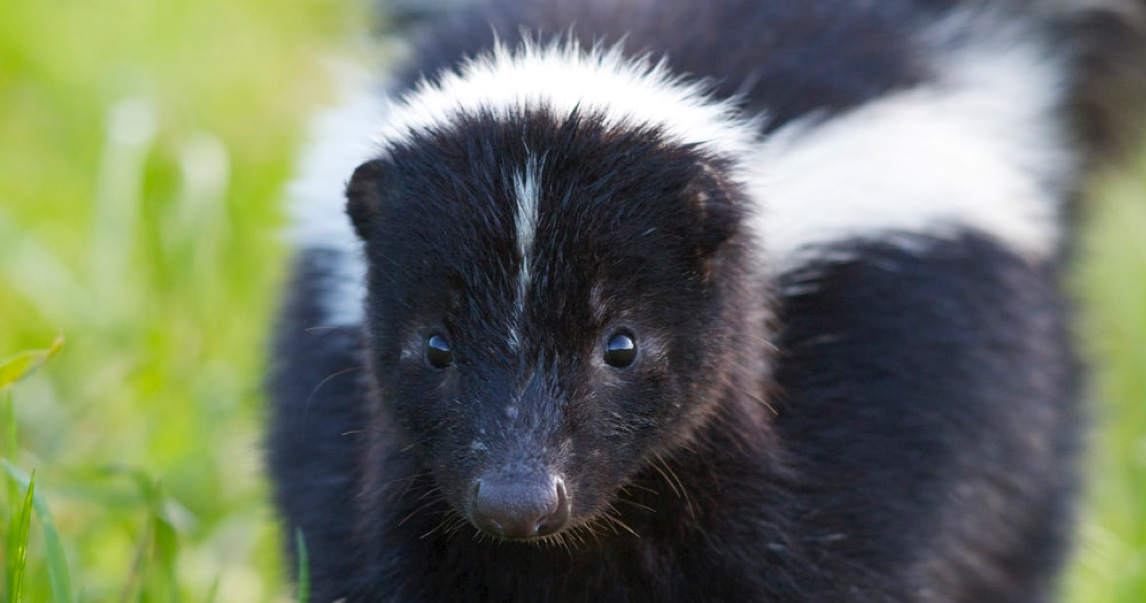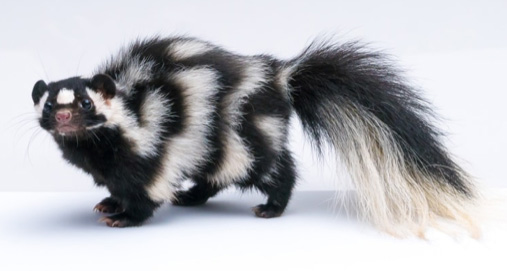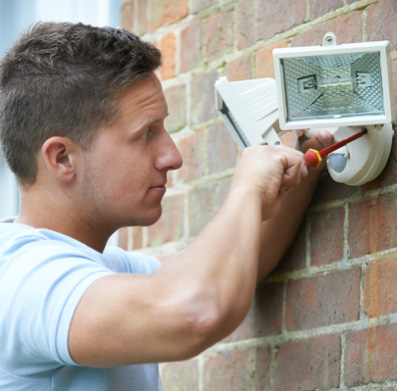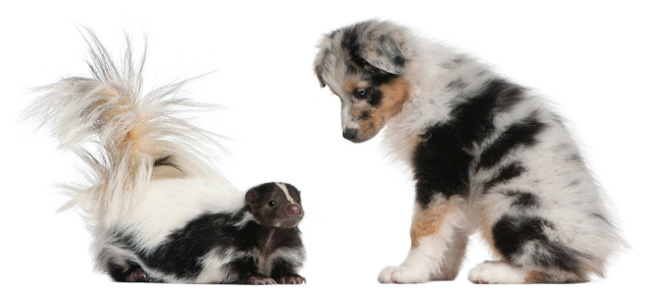
Skunks may be seen as a nuisance by many people, but they aren’t inherently bad. They are relatively easy-going animals and can be beneficial to your neighborhood—they can help control common pests like insects and rodents. However, skunks can pose a severe health risk to you and your family if they decide to move in near your house, due to their defensive odorous spray and the possibility that they could be carrying rabies. Skunks are also notorious for destroying lawns and crops, tearing up garbage and scattering it, and leaving a lingering stink in their wake wherever they go. But before you decide to call the professionals in to remove them permanently, try these five surprising tips for deterring skunks from ever visiting your home in the first place:
1. Remove Their Food Source

If you rid skunks of their primary food source near your home, they won’t have a reason to be there. Do whatever you can to remove any bugs and rodents from your house, including underneath the building, inside sheds and garages, and underneath your porch or patio. If you are unable to do this yourself effectively, call in pest control services to help you out. To further cut off their access to food, pick up any fruit, nuts, or berries that may have fallen from trees on your property. You can even pick them as soon as they are ripe. Without these reliable sources, skunks are much less likely to want to come back to your house.
2. Feed Your Pets Inside

When it comes to food, skunks aren’t that picky. They are what are known as opportunistic foragers and will eat pretty much anything you leave out. They will happily tear into your trash or any pet food you leave unattended. So, it is best not to give them a chance! Make sure to feed your pets inside the house to avoid attracting unwanted pests like skunks, which are drawn to exposed substances they can smell, such as pet food. Be thorough here and make sure you also remove any other food sources that could attract them, like low-hanging bird feeders.
3. Seal Everything properly

Whether it’s your garbage cans or storage containers full of pet food, it is imperative to seal them properly. Invest in air-tight containers for storing edible items or anything with a strong odor that might attract skunks. Alternatively, buy some air-tight sealing tape to reinforce the receptacles you already have and to secure your trash cans. Take extra care in cleaning food and drink containers properly before you throw them out, too.
It may also be helpful to move your trash cans inside your house at night if you can, so the smell doesn’t attract any skunks in the area. To take this one step further, work on sealing up any accessible openings in or around your house, such as below porches and patios, under foundations and elevated houses, and ensure any sheds or barns on your property are tightly sealed and always remain closed. You can use wire mesh to properly seal any openings like your basement or crawlspaces that skunks could be entering through, ensuring you dig the mesh a few inches into the ground so that it can’t be easily dug up.
4. Consistency Is Key

Without causing too much disturbance to their homes, gently and consistently cause hassle to the skunks’ habitat. Try covering over the openings to their dens with natural debris, such as leaves and sticks, and replace it every time they move it. Disrupting their home is not recommended as a first resort, as it can be dangerous to be close to the skunks. Be extra careful if you do decide to try this and only do it when the skunks are NOT inside the dens.
You can also try setting up outdoor lighting to scare them away and even install noise machines if necessary. Be careful with these techniques, as you could disturb your neighbors in the process. If you are aiming to act proactively and prevent skunks from even thinking about setting up dens around your house, focus on removing any possible den sites. Such sites can include anything from log piles, rock piles, brush build-up, and other debris that may have become piled up around the house. Skunks don’t construct their dens. They use existing structures to build up their burrows, so make sure they don’t have any spots to do this in and around your house. Consistently raking your lawn is also helpful in keeping it clear of clutter, which attracts skunks as they feel hidden and protected by the mess. Pick up any fallen fruit and debris, any branches, and clean up any messy shrubbery near the house. Keeping your property clean and open will leave skunks feeling exposed, and they won’t want to stick around.
5. Odor-Removing Products

If it comes down to it and you do need to tackle the unpleasant lingering smell of skunk musk, try using products that are uniquely designed to remove skunk odor from your pets, like SkunkAway. It’s a veterinarian formulated solution to instantly cancel out any remaining odorous compounds and permanently neutralize them, even after animals get wet again. That is something other products just cannot do effectively. Just make sure when choosing products, whatever they are, that you are choosing items that will not be harmful to other local wildlife.
But remember, if these tricks don’t work, don’t hesitate to call in the professionals. Skunks are challenging to catch and, aside from the obvious musk risk, can carry dangerous diseases like rabies—so don’t risk it! The absolute best way to deal with skunks is to take the right precautionary steps, so, ideally, you don’t ever actually have to deal with them.
SkunkAway®, and other great cleaning products are available both retail and wholesale, shipping directly to you via Alpha Tech Pet.